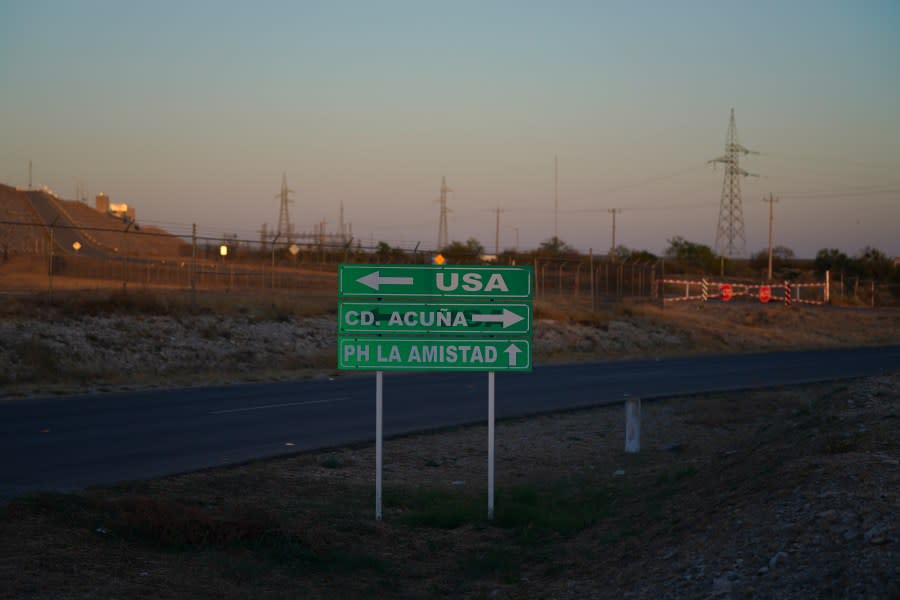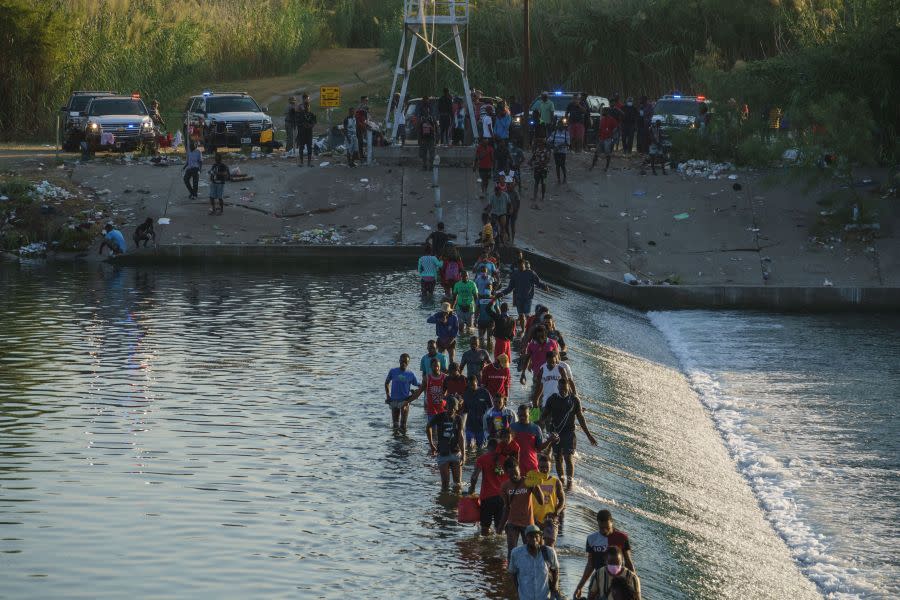Mexican border town celebrates legacy of ‘El Mariachi’

- Oops!Something went wrong.Please try again later.
- Oops!Something went wrong.Please try again later.
- Oops!Something went wrong.Please try again later.
CIUDAD ACUÑA, Mexico (Border Report) – It’s been 28 years since Cheech Marin tended bar and Antonio Banderas shot a bunch of bad guys inside the place. Still, visitors keep coming to the Corona Club to have a drink, look at pictures on the wall and celebrate the legacy the films “El Mariachi” (1992) and “Desperado” (1995) left on their city.
Those movies “have great significance for Acuña and for the bar,” said Gerardo Garza, owner of the iconic business on Calle Hidalgo, where the gunfight scenes for both productions were shot. “As it is, Acuña has always had tourists – from Texas (military) bases, the colleges in Austin, Texas A&M, San Marcos, San Angelo, Houston, and others looking for a good time. They also come because this is the birthplace of ‘El Mariachi.'”
Acuña is across the border from Del Rio, Texas.
The “Mariachi” is a Mexican protagonist concocted by Garza’s uncle, Carlos Gallardo, and University of Texas graduate Robert Rodriguez. A roving musician taking on a Mexican drug lord, the original indie movie was made on a $7,000 budget with locals as actors.
Mexican border drama wins Greece’s top film prize
It won the Sundance Film Festival’s Audience Award in 1993 and went on to gross $2 million at theaters. In 2011, the Library of Congress designated it for preservation in the U.S. National Film Registry for its cultural and aesthetic value.

Garza said his uncle and high school and college pal Rodriguez had been making home movies since they were teenagers. They would record each other, family members and friends. Their success with “El Mariachi” led to the Hollywood-backed sequel “Desperado” featuring Banderas, Salma Hayek and Marin as the bartender. A third movie featuring the El Mariachi character starred Johnny Depp but was filmed in Guanajuato.
Mexican-born filmmaker fears losing hope if DACA thrown out
“People come, ask (about the movie) and take pictures. It’s not just people from the United States but from Mexico as well. They all remember the scene with Cheech Marin behind the bar and Antonio Bandera firing his guns all over the place,” Garza said.
The bar, floor and walls remain as in the movie. Photographs of the production, cast and the town hang on the walls. On a recent Friday evening, green and red lights lined Calle Hidalgo in anticipation of the Mexican Independence holiday. Inside the bar, a small crowd of locals enjoyed drinks and loud Mexican music.
Tijuana bars and nightclubs must link surveillance cameras to city police network
“I have not seen the movie, but it is good it gives people a reason to visit our city,” said Acuña resident Alberto Martinez, 38.
Garza said the business opened sometime in the 1900s as a small restaurant called the Toltec Cafe. It became the Toltec Bar under his father. Later, he signed a deal with the local Corona beer distributor and the business became the Corona Club Toltec Bar, as the sign at the entrance says today.
87,000 beer cans and bottles destroyed after piling up at border throughout pandemic
The violence portrayed in the movies became all too real not just in Acuña but all along the Mexican border in the mid-2000s. “It affected tourism. Public security was lost to organized crime in 2006-2007. Then came peace in 2012,” Garza said.

He describes Acuña today as a peaceful city, even at night. He said the COVID-19 pandemic also drove people away. The migrant crisis that drew the eyes of the world to Acuña and neighboring Del Rio, Texas, in September 2021, has shifted downstream on the Rio Grande to Piedras Negras and Eagle Pass, Texas.
“People are coming back little by little. They’re coming again from the (military) bases. This is a place where people can come, have a good time and spread that through word-of-mouth. That’s how we hope to grow again,” Garza said.
For the latest news, weather, sports, and streaming video, head to FOX 5 San Diego.

